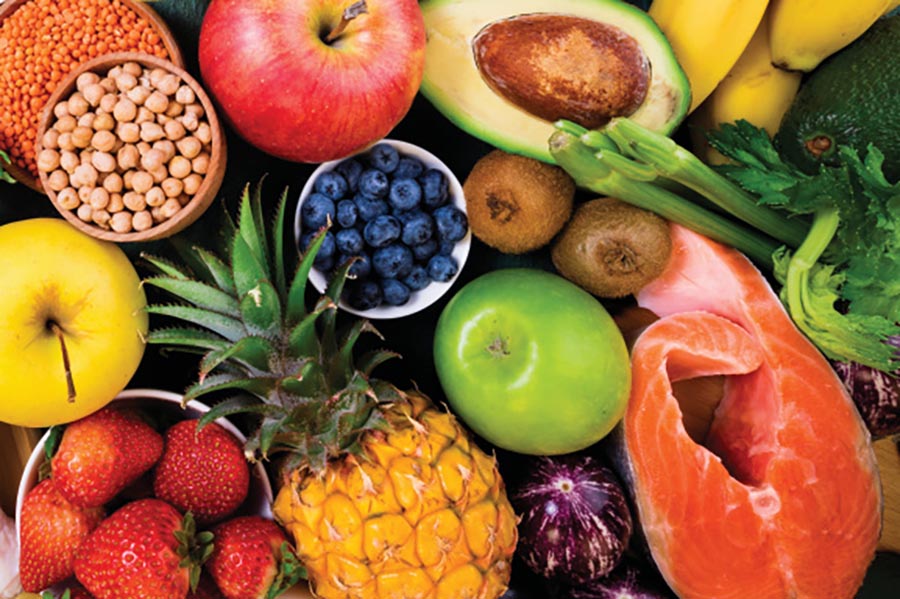
February has long been known as the month of love, and there’s no better time to show your heart some love by paying attention to your diet. Cardiovascular disease kills about 2,300 people every day, and heart disease is the single largest health threat to Americans. In fact, heart disease kills more people than all forms of cancer combined.
That’s why President Lyndon B. Johnson declared February American Heart Month in 1964, and the tradition continues today. American Heart Month exists to raise awareness about heart health and the need to make healthy choices – including not smoking, controlling blood sugar and cholesterol, engaging in physical activity and paying better attention to what we eat.
“Anything we put in our bodies has the potential to maintain, improve or even damage our health. This includes foods and beverages,” says Alice Sanchez, Registered Dietitian and Communications Committee member for the Florida Academy of Nutrition and Dietetics. “The heart is one of the most affected body parts when it comes to the composition of our diets.”
”The heart is one of the most affected body parts when it comes to the composition of our diets.”
– Alice Sanchez, registered dietitian and communications committee member for the Florida Academy of Nutrition and Dietetics
Heart-Friendly Foods
 Some foods may affect your heart more than others. Foods that are a source of saturated and trans fats, excess sodium and added sugars tend to contribute to negative health events. In contrast, foods that are rich in fiber, antioxidants and anti-inflammatory properties may improve our health and prevent disease. Eating a heart-healthy diet consisting of whole grains, fruits, vegetables, lean meats, skim or low-fat dairy products, and plant-based oils may support heart health.
Some foods may affect your heart more than others. Foods that are a source of saturated and trans fats, excess sodium and added sugars tend to contribute to negative health events. In contrast, foods that are rich in fiber, antioxidants and anti-inflammatory properties may improve our health and prevent disease. Eating a heart-healthy diet consisting of whole grains, fruits, vegetables, lean meats, skim or low-fat dairy products, and plant-based oils may support heart health.
“Omega-3 fatty acids are a type of fat that may help reduce inflammation, prevent the build-up of plaque in arteries, improve blood pressure and possibly reduce the risk for heart disease,” Sanchez says. “Foods that are typically rich in omega-3 fatty acids include fish such as Florida-caught mackerel, herring and tuna.”
All fruits and vegetables may enhance heart health, as they are usually rich in fiber, antioxidants, potassium and other essential nutrients. Fortunately for Floridians, there are plenty of options for locally grown fresh fruits and vegetables year round.
“Produce grown in Florida that can improve heart health includes citrus, tomatoes, bell peppers, watermelon and strawberries,” Sanchez says. “Each of these foods is a source of vitamin C (an antioxidant), potassium (which can normalize blood pressure) and fiber (which can lower cholesterol). Squash is another native plant rich in vitamin A, another antioxidant with protective effects.”
Improving Heart Health
The American Heart Association reports that despite the alarming statistics about heart disease and its effect on Americans, 58% of people surveyed say they put no effort into improving their heart health. Additionally, 83% of people say they believe heart attacks are preventable, but they aren’t motivated to do anything. Meanwhile, obesity rates in youth and adults keep rising, and Americans continue to make unhealthy lifestyle choices.
“The best piece of advice I have for people looking to improve their health through diet is to find small ways to incorporate fresh fruits and vegetables into your day,” Sanchez says. “This could be done by adding fresh produce to smoothies, a soup or stock, and as a side dish. Adding in heart-healthy foods is a key strategy in preventing disease and improving your overall health.”
For more information about heart-healthy foods, visit heart.org.








